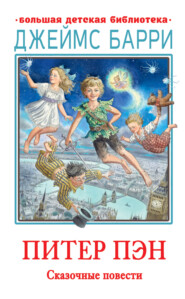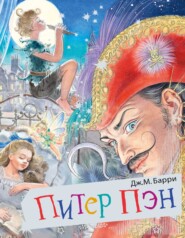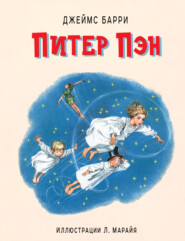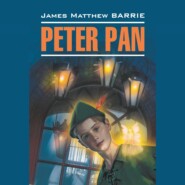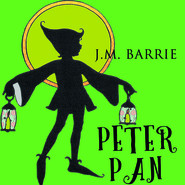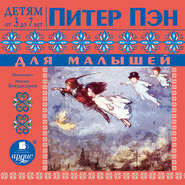По всем вопросам обращайтесь на: info@litportal.ru
(©) 2003-2025.
✖
When a Man's Single: A Tale of Literary Life
Автор
Год написания книги
2017
Настройки чтения
Размер шрифта
Высота строк
Поля
'It is a Christmas card a little boy in one of those houses gave me,' she said, as Rob returned it to her. 'Have you got many Christmas cards to-day, Mr. Angus?'
'None,' said Rob.
'Not even from your relatives?' asked Mary, beginning to pity him more than was necessary.
'I have no relatives,' he replied; 'they are all dead.'
'I was in Scotland two summers ago,' Mary said, very softly, 'at a place called Glen Quharity; papa was there shooting. But I don't suppose you know it?'
'Our Glen Quharity!' exclaimed Rob; 'why, you must have passed through Thrums?'
'We were several times in Thrums. Have you been there?'
'I was born in it; I was never thirty miles away from it until I came here.'
'Oh,' cried Mary, 'then you must be the literary – ' She stopped and reddened.
'The literary saw-miller,' said Rob, finishing her sentence; 'that was what they called me, I know, at Glen Quharity Lodge.'
Mary looked up at him with a new interest, for when she was there Glen Quharity had been full of the saw-miller, who could not only talk in Greek, but had a reputation for tossing the caber.
'Papa told me some months ago,' she said, in surprise, 'that the liter – , that you had joined the Press in England, but he evidently did not know of your being in Silchester.'
'But how could he have known anything about me?' asked Rob, surprised in turn.
'This is so strange,' Mary answered. 'Why, papa takes credit for having got you your appointment on the press.'
'It was a minister, a Mr. Rorrison, who did that for me,' said Rob; 'indeed, he was so good that I could have joined the Press a year ago by his help, had not circumstances compelled me to remain at home.'
'I did not know the clergyman's name,' Mary said, 'but it was papa who spoke of you to him first. Don't you remember writing out this clergyman's sermon in shorthand, and a messenger's coming to you for your report on horseback next day?'
'Certainly I do,' said Rob, 'and he asked me to write it out in longhand as quickly as possible. That was how I got to know Mr. Rorrison; and, as I understood, he had sent for the report of the sermon, on hearing accidentally that I had taken it down, because he had some reason for wanting a copy of it.'
'Perhaps that was how it was told to you afterwards,' Mary said, 'but it was really papa who wanted the sermon.'
'I should like to know all about it,' Rob said, seeing that she hesitated. Colonel Abinger had not seemed to him the kind of man who would send a messenger on horseback about the country in quest of sermons.
'I am afraid,' Mary explained, 'that it arose out of a wager. This clergyman was staying at the Lodge, but papa was the only other person there who would go as far as Thrums to hear him preach. I was not there that year, so I don't know why papa went, but when he returned he told the others that the sermon had been excellent. There is surely an English church in Thrums, for I am sure papa would not think a sermon excellent that was preached in a chapel?'
'There is,' said Rob; 'but in Thrums it is called the chapel.'
'Well, some badinage arose out of papa's eulogy, and it ended in a bet that he could not tell the others what this fine sermon was about. He was to get a night to think it over. Papa took the bet a little rashly, for when he put it to himself he found that he could not even remember the text. As he told me afterwards (here Mary smiled a little), he had a general idea of the sermon, but could not quite put it into words, and he was fearing that he would lose the wager (and be laughed at, which always vexes papa), when he heard of your report. So a messenger was sent to Thrums for it – and papa won his bet.'
'But how did Mr. Rorrison hear of my report, then?'
'Oh, I forgot; papa told him afterwards, and was so pleased with his victory, that when he heard Mr. Rorrison had influence with some press people, he suggested to him that something might be done for you.'
'This is strange,' said Rob, 'and perhaps the strangest thing about it is that if Colonel Abinger could identify me with the saw-miller, he would be sorry that he had interfered.'
Mary saw the force of this so clearly that she could not contradict him.
'Surely,' she said, 'I heard when I was at the Lodge of your having a niece, and that you and the little child lived alone in the saw-mill?'
'Yes,' Rob answered hoarsely, 'but she is dead. She wandered from home, and was found dead on a mountain-side.'
'Was it long ago?' asked Mary, very softly.
'Only a few months ago,' Rob said, making his answer as short as possible, for the death of Davy moved him still. 'She was only four years old.'
Mary's hand went half-way toward his involuntarily. His mouth was twitching. He knew how good she was.
'That card,' he began, and hesitated.
'Oh, would you care to have it?' said Mary.
But just then Colonel Abinger walked into them, somewhat amazed to see his daughter talking to one of the lower orders. Neither Rob nor Mary had any inclination to tell him that this was the Scotsman he had befriended.
'This is Mr. Angus, papa,' said Mary, 'who – who was with us last night.'
'Mr. Angus and I have met before, I think,' replied her father, recalling the fishing episode. His brow darkened, and Rob was ready for anything, but Colonel Abinger was a gentleman.
'I always wanted to see you again, Mr. Angus,' he said, with an effort, 'to ask you – what flies you were using that day?'
Rob muttered something in answer, which the colonel did not try to catch. Mary smiled and bowed, and the next moment she had disappeared with her father down the avenue.
What followed cannot be explained. When Rob roused himself from his amazement at Mary Abinger's having been in Thrums without his feeling her presence, something made him go a few yards inside the castle grounds, and, lying lightly on the snow, he saw the Christmas card. He lifted it up as if it were a rare piece of china, and held it in his two hands as though it were a bird which might escape. He did not know whether it had dropped there of its own accord, and doubt and transport fought for victory on his face. At last he put the card exultingly into his pocket, his chest heaved, and he went toward Silchester whistling.
CHAPTER VII
THE GRAND PASSION?
One of the disappointments of life is that the persons we think we have reason to dislike are seldom altogether villains; they are not made sufficiently big for it. When we can go to sleep in an arm-chair this ceases to be a trouble, but it vexed Mary Abinger. Her villain of fiction, on being haughtily rejected, had at least left the heroine's home looking a little cowed. Sir Clement in the same circumstances had stayed on.
The colonel had looked forward resentfully for years to meeting this gentleman again, and giving him a piece of his stormy mind. When the opportunity came, however, Mary's father instead asked his unexpected visitor to remain for a week. Colonel Abinger thought he was thus magnanimous because his guest had been confidential with him, but it was perhaps rather because Sir Clement had explained how much he thought of him. To dislike our admirers is to be severe on ourselves, and is therefore not common.
The Dome had introduced the colonel to Sir Clement as well as to Rob. One day Colonel Abinger had received by letter from a little hostelry in the neighbourhood the compliments of Sir Clement Dowton, and a request that he might be allowed to fish in the preserved water. All that Mary's father knew of Dowton at that time was that he had been lost to English society for half a dozen years. Once in many months the papers spoke of him as serving under Gordon in China, as being taken captive by an African king, as having settled down in a cattle-ranch in the vicinity of Manitoba. His lawyers were probably aware of his whereabouts oftener than other persons. All that society knew was that he hated England because one of its daughters had married a curate. The colonel called at the inn, and found Sir Clement such an attentive listener that he thought the baronet's talk quite brilliant. A few days afterwards the stranger's traps were removed to the castle, and then he met Miss Abinger, who was recently home from school. He never spoke to her of his grudge against England.
It is only the unselfish men who think much, otherwise Colonel Abinger might have pondered a little over his guest. Dowton had spoken of himself as an enthusiastic angler, yet he let his flies drift down the stream like fallen leaves. He never remembered to go a-fishing until it was suggested to him. He had given his host several reasons for his long absence from his property, and told him he did not want the world to know that he was back in England, as he was not certain whether he would remain. The colonel at his request introduced him to the few visitors at the castle as Mr. Dowton, and was surprised to discover afterwards that they all knew his real name.
'I assure you,' Mary's father said to him, 'that they have not learned it from me. It is incomprehensible how a thing like that leaks out.'
'I don't understand it,' said Dowton, who, however, should have understood it, as he had taken the visitors aside and told them his real name himself. He seemed to do this not of his free will, but because he could not help it.
It never struck the colonel that his own society was not what tied Sir Clement to Dome Castle; for widowers with grown-up daughters are in a foreign land without interpreters. On that morning when the baronet vanished, nevertheless, the master of Dome Castle was the only person in it who did not think that it would soon lose its mistress, mere girl though she was.
Sir Clement's strange disappearance was accounted for at the castle, where alone it was properly known, in various ways. Miss Abinger, in the opinion of the servants' hall, held her head so high that there he was believed to have run away because she had said him no. Miss Abinger excused and blamed him alternately to herself, until she found a dull satisfaction in looking upon him as the villain he might have been had his high forehead spoken true. As for the colonel, he ordered Mary (he had no need) never to mention the fellow's name to him, but mentioned it frequently himself.
Nothing had happened, so far as was known, to disturb the baronet's serenity; neither friends nor lawyers had been aware that he was in England, and he had received no letters. Mary remembered his occasional fits of despondency, but on the whole he seemed to revel in his visit, and had never looked happier than the night before he went. His traps were sent by the colonel in a fury to the little inn where he had at first taken up his abode, but it was not known at the castle whether he ever got them. Some months afterwards a letter from him appeared in the Times, dated from Suez, and from then until he reappeared at Dome Castle, the colonel, except when he spoke to himself, never heard the baronet's name mentioned.









